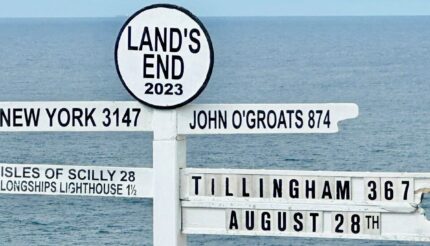Unique Selling Proposition… This is more than “good service,” or “good price” – it’s all about knowing what it is that makes you special, and being able to specifically explain it to your customers. This is your unique selling proposition – the thing that sets you apart from your competitors.
What is a successful USP?
It’s important to know how to define a successful USP. If you don’t know what you’re aiming for, you’ll never know if the whole exercise has been worth the trouble. First, it’s a good idea to work out what an UN-successful strategy is. Here are a couple of rough guidelines …
1) You finish writing it then stash it away in your filing cabinet forever
2) You do use it but nobody notices or cares
3) There’s already 3 competitors out there with the same guarantee and uniqueness
4) Your USP doesn’t target something that your customers care about – for example, a hairdresser that guarantees to sweep up your hair before you leave. They want to be known as the “clean floor” hairdresser. No-one cares!!
When you know what a weak USP is, it’s easy to work out what a good one is. For a start, it has to have IMPACT – it needs to make people sit up and take notice, and it has to get them thinking and talking. A great example- a restaurant that has no menu. They just cook whatever you feel like, and they guarantee to cook it better than your mother! Now that gets attention.
What about your business? You need to think of these aspects of your service that make a difference to people. Your uniqueness needs to tackle your competitors head on, and needs to answer the most common frustration.
The core elements.
There are a number of elements that make a big difference when creating a strong USP. Follow these guidelines and you’ll be set. These are broad guidelines, and are only designed to get you in the right mode of thinking. A successful USP should be …
1. Truly unique
2. Exciting to your target market
3. Something that will get people talking
4. Something that can’t be easily copied, or if it can be copied, it will be an obvious rip-off on the part of the offending business.
It’s important you know just how important it is.
So many business owners beat their heads against the wall, wondering why their business isn’t working. They try everything – new sales scripts, better ads, new products, yet to no avail … every day they open their doors, they plunge further into debt. In most cases, the reason things aren’t working is very simple – there’s not enough business out there, and very little reason for anyone to give it to you and not your competitors.
To illustrate, think about this example – Harry and Barry open a hardware store. There are 6 other hardware stores in the immediate area, but the boys aren’t fazed – the other shops are staffed by “kids who don’t know anything.” According to Harry and Barry, they’re experts in the game – and will get heaps of business simply because of that.
They open a store a block down from the big competitor, write a couple of ads with the headline, “Opening Sale” and they’re off and running. For two weeks, things seem to go well – they may be selling the products extra cheap, but they’re selling lots. The cash register keeps ringing and things are pumping along. Soon after though, things slow down. In fact, they almost come to a dead stop – just a few customers a day, buying a hammer here and there. The boys wonder why.
While they got a few things right – the ads were ok, the customer service was good, the store was laid out well and the products were well chosen, they missed the most important point of all … whether the business was viable at all.
If they’d done a little research, they would have discovered the following every year, 1.1 million dollars is spent on hardware in their area. If each of the 7 local hardware stores had an equal share of the sales, each one would have a turnover of around £150,000. Of course, the stores had wildly different figures. The largest, a nationwide chain had the lion’s share at £475,000 – almost half. The next biggest, a smaller, older store with a loyal client base, had £260,000. The 5 other stores made up the rest. Naturally, 4 of them were on the verge of going under. The fifth was Harry and Barry’s.
Looking at it from this perspective, the boys’ dream of opening a hardware store and becoming wealthy seemed a little unrealistic. They’ll be lucky if they last the next 6 months. Think about your situation. How much business is out there, and how much can you actually claim?
If there’s only a million dollars’ worth of sales, and you manage to grab 10%, that’s only £100,000 turnover. Take out basic expenses (not including your own wage), and you’d be lucky to pull £30,000 profit out of it. You may as well go and work for someone else – that way, you’ll earn more money and have less responsibility. If the business goes down, it’s not your house, car, and credit rating on the line.
Remember, if you don’t have a good reason for people to come to you, then you’ll get lost in the crowd.
What about your business? When you started, did you begin with a uniqueness – a real point of difference, or did you just start as a “me too” competitor?
Here’s an interesting thought, and something that most new business owners never consider. When a new grocery store opens, it must share sales with all other grocery stores in the area. If there’s already 3 stores, and two of them are already struggling, what makes you think you have a better chance? All you’ve done is split the sales further. Now, instead of the total area grocery sales being split between 3, they have to be split between 4.
If you start the business as a “me too” you can forget it. The days of competing on price and service are starting to end. These days, people have so many options, they can almost always get it somewhere cheaper, from someone who’ll do it better.
The major point is clear – you must STAND OUT. If you have no uniqueness, you have no reason for existence. Remember that – as new competitors come into the market, you’ll continue to sink. If there’s no reason to continue coming to you, and not them, you’ll keep losing customers. It’s a gloomy forecast, but a realistic one.
You must work out your uniqueness, and you must do it NOW.
For this very reason, we offer a free 30 minute coaching discovery call or free in-depth 60 minute business analysis sessions. To find out more click here.





